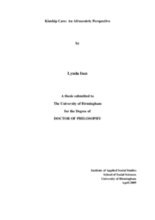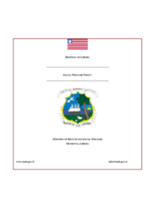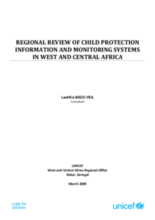Demographic Data
|
Sources: World Bank, UNICEF, UNDP HDR 2015, DHS 2014 |
Displaying 13311 - 13320 of 14390
This thesis explores the experiences and meanings that are attributed to kinship care by caregivers, young people of African descent, and social workers.
Analysis of policy and service model used to identify barriers in the delivery of alternative care services for children.
Outlines the project aims, critical areas of child care reform, and expected results of the Serbian initiative: “Transforming Residential Institutions for Children and Developing Sustainable Alternatives”
This country care review includes the care-related Concluding Observations adopted by the Committee on the Rights of the Child.
Companion resource to It’s About Ability, designed to empower children and young people to speak out on the convention and become advocates for inclusion.
This study explored the experiences of orphaned children who specifically take on the role of being both mother and father to their siblings.
This Social Welfare Policy is intended to provide direction for reforming the social welfare sector in Liberia.
The objective of this report is to review the initiatives carried out in the last four years in West and Central African countries with regard to child protection information and monitoring systems.
Summary information on recently published book on community strengthening in response to children needs in context of poverty and AIDS.
UNODC published Guidelines to implement family skills training programmes for drug abuse prevention in March 2009. These guidelines contain evidence of effectiveness, principles of family skills training programmes, cultural adaptation guidelines, advice on how to recruit and retain families through the programmes, practical advice on training of staff, as well as information about monitoring and evaluating family skills training programmes.








